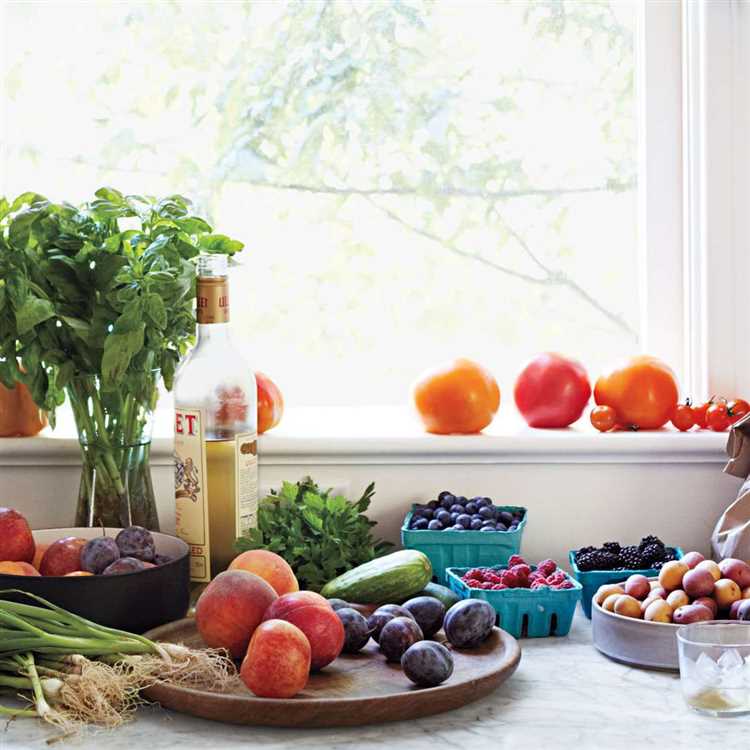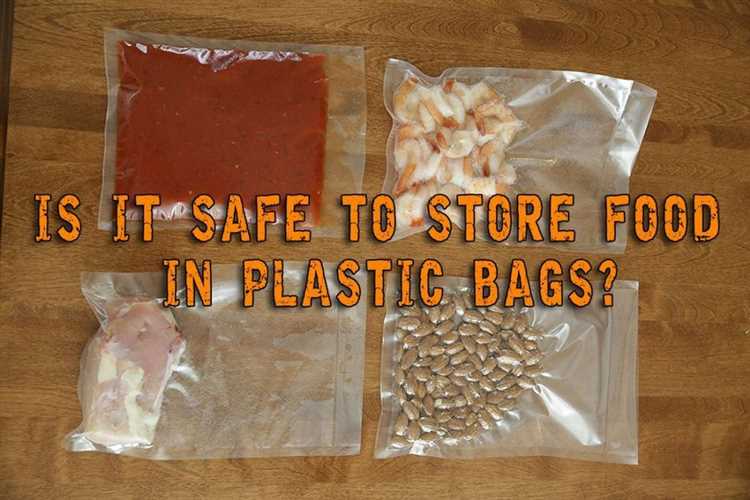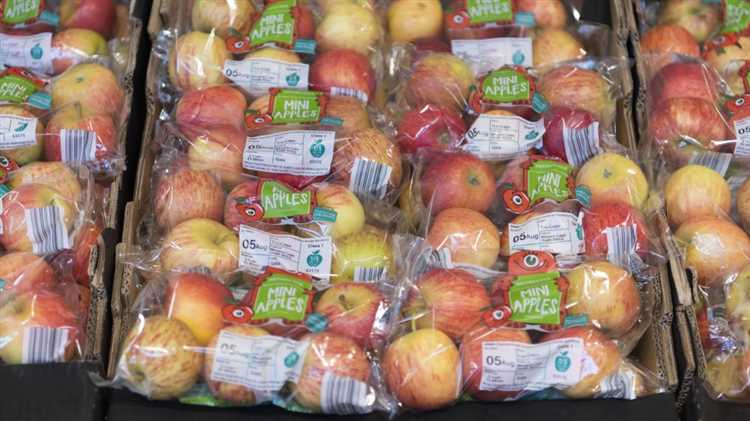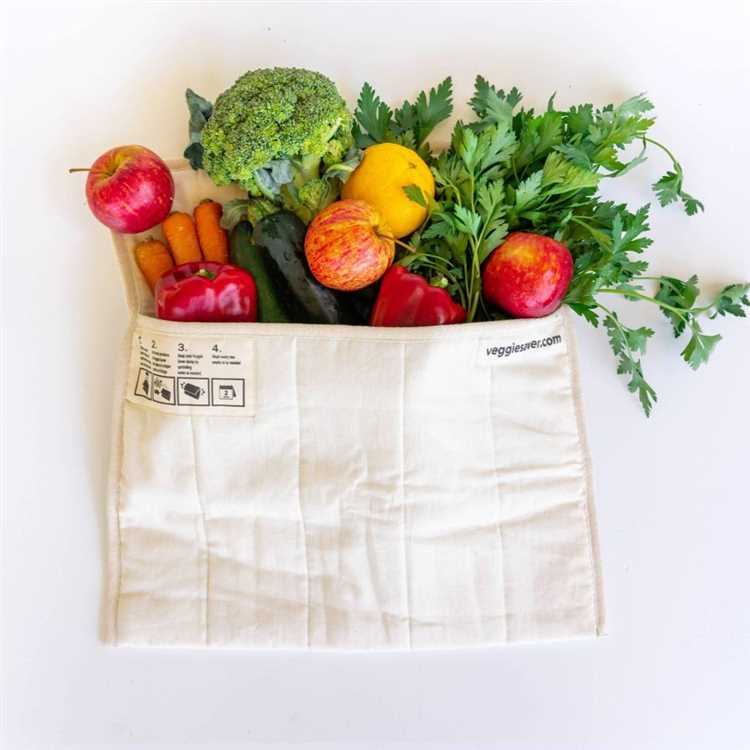
Proper storage of fruits is essential to maintain their freshness and extend their shelf life. Many people wonder whether storing fruits in plastic bags is a good idea or not. In this article, we will explore the benefits of storing fruits in plastic bags and help you decide if you should do it.
One of the key benefits of storing fruits in plastic bags is that it helps to retain moisture. Fruits contain a high amount of water, and exposure to air can cause them to lose moisture quickly. By storing fruits in plastic bags, you create a barrier that prevents moisture from escaping, keeping the fruits juicy and fresh for a longer period of time.
Another advantage of using plastic bags for fruit storage is that it helps to reduce ethylene gas exposure. Ethylene is a natural gas that fruits produce as they ripen. When fruits are stored together, the ethylene gas released by one fruit can speed up the ripening process of others, leading to spoilage. Plastic bags act as a barrier, preventing the ethylene gas from spreading and allowing you to control the ripening process.
Furthermore, storing fruits in plastic bags can help to prevent the spread of bacteria and fungal growth. Plastic bags create a protective barrier against external contaminants, reducing the chances of mold and bacteria growth on the fruits. This is especially important for fragile fruits with tender skins, such as berries, which are more susceptible to mold and decay.
Lastly, using plastic bags for fruit storage allows for better organization and easy identification. Clear plastic bags enable you to see the fruits inside without opening the bag, making it convenient to identify and grab the specific fruit you need. They also help to prevent cross-contamination between different types of fruits, keeping each fruit fresh and maintaining its unique flavor.
While there are benefits to storing fruits in plastic bags, it is important to choose the right type of bags. Look for breathable bags designed specifically for fruit storage, as they allow for proper air circulation and prevent excessive moisture buildup. Additionally, it is important to regularly check the fruits for any signs of spoilage and remove any spoiled fruits to prevent them from affecting the others.
In conclusion, storing fruits in plastic bags can be advantageous in terms of moisture retention, ethylene gas control, prevention of bacterial growth, and organization. However, it is essential to choose the right bags and regularly inspect the fruits to ensure their freshness and quality. Consider these benefits and take proper precautions to enjoy your fruits at their best.
- Freshness preservation
- Reduced ethylene exposure
- Protection from pests and contamination
- Protection against moisture
- Absence of condensation
- Selecting the right plastic bag
- Prevention of cross-contamination
- Extended shelf life
- Protection from mold and bacteria
- Convenience and organization
- Easy organization
- Reduce clutter
- Extend shelf life
- Waste reduction
- Benefits for the environment
- Proper disposal
- Q&A,
- Is it necessary to store fruit in plastic bags?
- What are the benefits of storing fruit in plastic bags?
- Can storing fruit in plastic bags help reduce spoilage?
- What types of fruit are best stored in plastic bags?
- How should fruit be stored in plastic bags?
- Is it better to store fruits in plastic bags?
Freshness preservation
One of the main benefits of storing fruit in plastic bags is the preservation of freshness. When fruits are exposed to air, they tend to oxidize and ripen faster. The oxygen in the air reacts with the enzymes in the fruit, causing it to break down and spoil. By storing fruits in plastic bags, you can create a barrier between the fruit and the air, helping to slow down the oxidation process and extend the freshness of the fruit.
Plastic bags also help to retain the natural moisture of the fruit. Fruits contain a high amount of water, and when they are exposed to air, they can lose moisture and become dehydrated. By storing fruits in plastic bags, you create a microclimate that helps to preserve the natural moisture content of the fruit, keeping it juicy and fresh for longer periods.
Reduced ethylene exposure
Another important aspect of freshness preservation when storing fruit in plastic bags is the reduction in ethylene exposure. Ethylene is a natural gas released by fruits as they ripen, and it can speed up the ripening process of other fruits. By storing fruits in plastic bags, you can limit the exposure of ethylene to other fruits, helping to slow down their ripening process. This can be particularly useful when you have a mixture of ripe and unripe fruits that you want to store together.
Protection from pests and contamination

Storing fruit in plastic bags also helps to protect them from pests and contamination. The tight seal of the bags prevents insects and other small creatures from accessing the fruit, reducing the risk of infestation. Additionally, it provides a physical barrier that can prevent bacteria or other contaminants from coming into contact with the fruit, helping to keep it safe and fresh for consumption.
Protection against moisture

One of the key benefits of storing fruit in plastic bags is the protection it provides against moisture. Fruits, such as berries, are particularly susceptible to moisture, which can cause them to spoil more quickly. By placing fruits in plastic bags, you can create a barrier that prevents moisture from reaching the fruit’s surface.
When moisture comes into contact with the fruit, it can accelerate the growth of mold and bacteria, leading to a shorter shelf life. Plastic bags help to keep the fruit dry, preserving its freshness and flavor for longer periods of time.
In addition to keeping moisture out, plastic bags also prevent the fruit’s natural moisture from escaping. This can be particularly beneficial for fruits that have a high water content, such as apples and oranges. By keeping the fruit’s moisture sealed in, it helps to prevent dehydration and maintain the fruit’s juiciness.
Absence of condensation

Another way in which plastic bags protect against moisture is by preventing condensation. When fruits are stored in open containers or exposed to air, condensation can form on their surfaces, leading to a damp environment that promotes mold growth.
However, when fruits are stored in a plastic bag, the bag acts as a barrier between the fruit and the surrounding air, preventing condensation from forming. This helps to keep the fruit fresh and dry, reducing the risk of spoilage and extending its shelf life.
Selecting the right plastic bag
When choosing plastic bags for storing fruit, it is important to select bags that are food-safe and made from high-quality materials. Look for bags that are specifically designed for food storage and have airtight seals to ensure maximum protection against moisture.
It is also important to remember to wash and dry the fruits thoroughly before placing them in the plastic bags. Any excess moisture on the fruit’s surface can decrease the effectiveness of the plastic bags in preventing moisture buildup.
In conclusion, storing fruit in plastic bags provides protection against moisture by creating a barrier that keeps moisture out and prevents condensation. This can help to extend the shelf life of fruits and keep them fresher for longer.
Always check the condition of your fruits regularly and discard any that show signs of spoilage.
Prevention of cross-contamination
Storing fruit in plastic bags can help prevent cross-contamination, which occurs when bacteria or other harmful substances from one food item come into contact with another. Without proper storage, fruits can easily come into contact with raw meats, poultry, or other potentially contaminated foods in the refrigerator, leading to the spread of harmful pathogens.
By placing fruits in sealed plastic bags, you create a barrier that helps prevent the transmission of bacteria or other contaminants. This is especially important for delicate fruits like berries or cut fruits, as they are more susceptible to contamination. The bags prevent any liquid from leaking onto the fruits and keep them separate from other food items, reducing the risk of cross-contamination.
Furthermore, using plastic bags can also minimize the risk of cross-contamination during transportation. When carrying fruits in a bag, they are less likely to come into direct contact with other items or surfaces that may contain bacteria or other contaminants. This can be particularly beneficial when bringing groceries home or transporting fruits for picnics or gatherings.
However, it is important to note that proper food safety practices should still be followed in addition to using plastic bags for storing fruits. This includes regular cleaning of the refrigerator, washing fruits before consumption, and separating raw meats from other food items. Plastic bags alone cannot guarantee food safety, but they can definitely help in reducing the risk of cross-contamination.
In conclusion, storing fruit in plastic bags can provide an extra layer of protection against cross-contamination. The bags act as a barrier, preventing the transmission of harmful bacteria or contaminants from other food items. While it is not a foolproof method, it can certainly contribute to maintaining the freshness and safety of your fruits.
Extended shelf life
Storing fruit in plastic bags can significantly extend its shelf life. The plastic bags help create a microclimate that slows down the fruit’s ripening process and protects it from external factors that can cause spoilage. The bags act as a barrier against moisture loss, which can lead to shriveling and browning of the fruit. They also help prevent the accumulation of ethylene gas, a natural ripening hormone that can cause fruits to overripen quickly.
By keeping fruits like apples, bananas, and pears in plastic bags, you can maintain their freshness and quality for a longer period. The bags help retain the natural moisture of the fruit, preventing it from drying out and becoming less palatable. This can be especially beneficial for fruits that are prone to quick spoilage, such as berries and delicate fruits like grapes.
Protection from mold and bacteria
Fruit can be susceptible to mold growth and bacterial contamination, which can cause it to spoil and become unsafe to consume. Storing fruit in plastic bags can help protect it from such contaminants. The bags act as a physical barrier, preventing mold spores and bacteria from coming into contact with the fruit’s surface. This can help reduce the risk of spoilage and extend the shelf life of the fruit.
Convenience and organization
Using plastic bags for fruit storage also offers convenience and organization benefits. The bags allow you to easily separate different types of fruits and keep them neatly organized in your refrigerator or pantry. This can make it easier to find and use the fruits as needed, preventing wastage and ensuring that you make the most of your fresh produce.
Additionally, plastic bags are transparent, allowing you to easily see the contents without opening them. This can help you monitor the condition of the fruits and identify any signs of spoilage or deterioration. It also makes it easier to plan meals and snacks based on the available fruits.
Overall, storing fruit in plastic bags can help extend its shelf life, protect it from mold and bacteria, and provide convenience and organization in your kitchen. Consider using plastic bags as a simple and effective method to keep your fruits fresh for longer.
Easy organization
Storing fruit in plastic bags not only helps prolong its freshness, but it also makes organizing your refrigerator or pantry much easier. By placing fruits in separate bags, you can create designated sections for different types of fruit, making it easier to find what you need and keep your fruits organized.
When fruits are stored together without any separation, they can easily become mixed up and make it difficult to find a specific fruit when you need it. Plastic bags allow you to keep different types of fruits separate, preventing them from getting mixed up and making it easier to locate a specific fruit when you want it.
Reduce clutter
Using plastic bags to store fruit can also help reduce clutter in your refrigerator or pantry. Instead of having loose fruits taking up space and causing disarray, storing them in individual bags keeps everything neat and organized.
Additionally, having fruits stored in bags makes it easier to stack them neatly on top of each other, maximizing the space available in your refrigerator or pantry. This means you can fit more fruits in a smaller area, creating additional space for other items and reducing clutter.
Extend shelf life
Not only does storing fruit in plastic bags make organizing easier and reduce clutter, but it also extends the shelf life of the fruit. The bags help maintain the fruits’ moisture levels, preventing them from drying out or spoiling quickly.
The plastic bags create a controlled environment for the fruit, regulating the moisture and preventing the fruits from being exposed to excessive air, which can cause them to spoil faster. By extending the shelf life of your fruit, you can enjoy fresh and delicious produce for a longer period of time.
Overall, using plastic bags to store fruit offers numerous benefits, including easy organization, reduced clutter, and extended shelf life. Consider incorporating this simple storage method into your routine to enjoy the maximum freshness and convenience of your fruits.
Waste reduction
One of the benefits of storing fruit in plastic bags is the potential for waste reduction. By using plastic bags, you can help extend the shelf life of your fruits, which can in turn reduce the amount of food waste. When fruits are left exposed to air, they can quickly deteriorate and become overripe or spoiled. However, by placing them in plastic bags, you create a barrier that helps to maintain their freshness for a longer period of time.
When fruits remain fresh for longer, you are less likely to throw them away due to spoilage. This not only helps you save money, but it also contributes to reducing food waste on a larger scale. Food waste is a significant issue worldwide, with billions of tons of food being wasted each year. By taking simple steps like storing fruit in plastic bags, we can all play a role in minimizing this waste and its negative impact on the environment.
Benefits for the environment
Using plastic bags to store fruit can also have positive environmental benefits. Plastic bags are lightweight and take up less space compared to other storage materials, such as glass containers or aluminum foil. This means that using plastic bags can help save on transportation and storage costs, reducing the overall carbon footprint associated with food distribution.
In addition, storing fruit in plastic bags can reduce the need for single-use plastic packaging. When you buy pre-packaged fruits from the grocery store, they often come in plastic containers or trays that are meant to be thrown away after use. By storing fruits in reusable plastic bags, you can eliminate the need for these single-use containers and contribute to a more sustainable lifestyle.
Proper disposal
While plastic bags can offer benefits for storing fruit and reducing waste, it’s important to remember to dispose of them properly. Many plastic bags can be recycled at designated recycling centers or through store drop-off programs. Be sure to check with your local recycling guidelines to ensure proper disposal.
If not properly disposed of, plastic bags can contribute to plastic pollution and harm wildlife and ecosystems. Avoid littering or throwing plastic bags in regular trash bins, as they may end up in landfills or bodies of water. By practicing responsible waste management and recycling, we can continue to enjoy the benefits of using plastic bags for fruit storage while minimizing their environmental impact.
Q&A,
Is it necessary to store fruit in plastic bags?
It is not necessary to store fruit in plastic bags, but it can help extend the shelf life of the fruit by creating a controlled environment with optimal humidity.
What are the benefits of storing fruit in plastic bags?
Storing fruit in plastic bags can help prevent moisture loss and slow down the ripening process, resulting in fruit that stays fresh longer.
Can storing fruit in plastic bags help reduce spoilage?
Yes, storing fruit in plastic bags can help reduce spoilage by minimizing exposure to air and moisture, which are the main factors that accelerate the decay of fruit.
What types of fruit are best stored in plastic bags?
Most types of fruit can be stored in plastic bags, but fruits like apples, pears, and peaches are particularly well-suited for this method since they release ethylene gas, which can speed up the ripening process if left in open air.
How should fruit be stored in plastic bags?
To store fruit in plastic bags, make sure the bags are clean and dry, and then place the fruit inside, ensuring it is not overcrowded. Close the bags loosely, leaving some room for air circulation, and store them in the refrigerator or a cool, dark place.
Is it better to store fruits in plastic bags?
Yes, storing fruits in plastic bags helps to maintain their freshness and prevent them from overripening. The bags create a controlled environment that slows down the ripening process and extends the shelf life of the fruits.